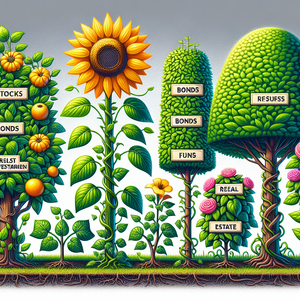The Evolution of Home Away from Home

In the mid-20th century, the concept of vacation ownership began to take shape with the introduction of timeshares. Timeshare arrangements allowed multiple families to share ownership of a property, making it a more economical option for enjoying vacation homes. This model offered a sense of familiarity and belonging, as families could return to the same location year after year. However, these arrangements had notable limitations, including fixed weeks of usage and limited flexibility in scheduling. Alongside timeshares, the trend of family-owned holiday homes gained traction during this time. These properties served as personal retreats, enabling families to create lasting memories in a familiar setting. However, the model of shared ownership was often inaccessible to many travelers who could not afford to invest in property ownership. As a result, a significant portion of the population was left out of this vacation experience.
The Rise of the Internet: From Listings to Marketplaces
The late 1990s marked a pivotal moment in the evolution of vacation rentals with the advent of the internet. The emergence of websites allowed homeowners to list their properties for rent directly, democratizing access to vacation accommodations. This shift allowed travelers to find a diverse range of options tailored to their budgets and preferences. One of the earliest platforms, VRBO (Vacation Rentals by Owner), launched in 1995, enabling homeowners to rent out their properties directly to travelers. This model provided more variety than traditional hotels, offering unique stays in homes, cabins, and unconventional settings such as treehouses or houseboats. As internet access broadened, the number of vacation rental listings surged, and travelers increasingly sought personalized experiences that traditional hotel chains could not provide.
The Impact of Social Media and the Sharing Economy
The 2010s brought significant changes with the rise of social media and the sharing economy, leading to the emergence of platforms like Airbnb. This new model empowered homeowners to rent out spare rooms or entire homes, facilitating a more informal and authentic travel experience. Travelers began to prioritize unique accommodations that reflected local culture and character, resulting in a substantial increase in the popularity of vacation rentals. Airbnb's success demonstrated the power of user-generated content. Guests could leave reviews, share photos, and provide recommendations, enabling future travelers to make informed decisions about their accommodations. This transparency fostered trust between hosts and guests, which further propelled the growth of the vacation rental market. The experience of staying in a local home instead of a hotel became a desirable part of the travel experience, allowing visitors to engage with their surroundings in a more meaningful way.
New Trends: Remote Work and Extended Stays
The COVID-19 pandemic catalyzed a seismic shift in work culture, with remote work becoming the norm for many employees. This transition has profoundly impacted vacation rentals, as professionals now seek to escape the confines of their home offices and find inspiration in new environments. Vacation rentals have become ideal solutions for those looking to blend work and leisure, with many properties offering amenities such as high-speed internet and dedicated workspaces. The trend of "workations" has emerged as a response to this new reality, where individuals or families book extended stays in vacation rentals. This allows them to explore new destinations while maintaining their professional responsibilities. Scenic properties—beach houses, mountain cabins, and urban lofts—have become increasingly sought after as they provide a refreshing backdrop for both work and relaxation. This trend underscores a broader cultural shift toward work-life balance and the desire for experiences that resonate with personal values.
The evolution of vacation rentals reflects broader changes in society, technology, and travel preferences. As we look to the future, the demand for unique, personalized experiences will undoubtedly continue to shape this industry. With the rise of remote work and a growing emphasis on sustainable travel, vacation rentals are poised to play a pivotal role in how we experience the world. Travelers are no longer merely seeking a place to stay; they are searching for a "home away from home" that aligns with their values and lifestyle. As technology continues to advance, we can expect further innovations in the vacation rental market, making it an exciting space to watch for both travelers and property owners alike. The journey of vacation rentals is far from over, and as our preferences evolve, so too will the offerings in this dynamic sector.
Property Manager for Vacation Rentals
Core Responsibilities
Oversee the day-to-day operations of vacation rental properties, ensuring all listings are accurately represented and well-maintained.
Coordinate with cleaning services and maintenance teams to ensure properties meet guest expectations and local regulations.
Manage guest communications, including inquiries, bookings, and post-stay feedback.
Required Skills
Strong organizational and multitasking skills to handle multiple properties simultaneously.
Familiarity with property management software (e.g., Guesty, Lodgify) and platforms like Airbnb or VRBO.
Excellent customer service and communication skills to interact with guests and resolve issues promptly.
Common Employers
Local property management companies, larger vacation rental agencies, or real estate firms expanding into the vacation rental market.
Digital Marketing Specialist for Travel and Hospitality
Core Responsibilities
Develop and execute digital marketing strategies to increase visibility and bookings for vacation rental properties.
Create engaging content for social media, blogs, and email newsletters that resonate with target audiences.
Analyze marketing campaign performance using tools like Google Analytics and adjust strategies based on data insights.
Required Skills
Proficiency in SEO, SEM, and social media marketing, with a proven track record of successful campaigns.
Experience with tools like HubSpot, Mailchimp, and social media management platforms (e.g., Hootsuite).
Creative writing and graphic design skills for producing compelling marketing materials.
Common Employers
Marketing agencies, travel companies, or independent vacation rental owners looking to enhance their online presence.
Vacation Rental Revenue Manager
Core Responsibilities
Analyze market trends and competitor pricing to develop dynamic pricing strategies that maximize revenue for vacation rental properties.
Monitor occupancy rates and adjust marketing efforts and pricing models accordingly.
Collaborate with property owners to set financial goals and provide regular performance reports.
Required Skills
Strong analytical skills with a background in finance or economics, and familiarity with revenue management software.
Knowledge of the hospitality industry and understanding consumer behavior related to travel.
Excellent communication skills for presenting findings and strategies to stakeholders.
Common Employers
Hospitality management companies, vacation rental platforms, or real estate investment firms focusing on short-term rentals.
User Experience (UX) Designer for Travel Platforms
Core Responsibilities
Design user-friendly interfaces for vacation rental websites and mobile applications, ensuring a seamless booking experience.
Conduct user research and usability testing to gather insights and make data-driven design decisions.
Collaborate with developers and product teams to implement design solutions that enhance user engagement.
Required Skills
Proficiency in design tools such as Sketch, Figma, or Adobe XD, and a strong portfolio showcasing previous UX projects.
Understanding of web accessibility standards and best practices for responsive design.
Strong problem-solving skills and ability to advocate for user-centered design principles.
Common Employers
Tech companies specializing in travel, booking platforms like Airbnb or Expedia, or digital product agencies.
Sustainability Consultant for Hospitality Industry
Core Responsibilities
Advise vacation rental companies on sustainable practices, including energy efficiency, waste reduction, and eco-friendly amenities.
Conduct assessments of properties to identify areas for sustainability improvements and implement actionable strategies.
Educate property owners and managers on the benefits of sustainable practices for attracting eco-conscious travelers.
Required Skills
Background in environmental science, sustainability, or hospitality management, with a passion for sustainable tourism.
Familiarity with green certifications and sustainability standards in the hospitality sector.
Strong communication and presentation skills to engage stakeholders and promote sustainability initiatives.
Common Employers
Consulting firms, non-profits focused on sustainable tourism, or companies within the hospitality industry looking to enhance their green practices.


